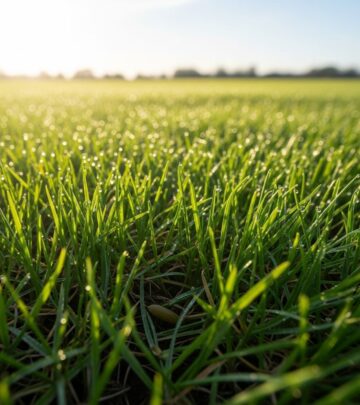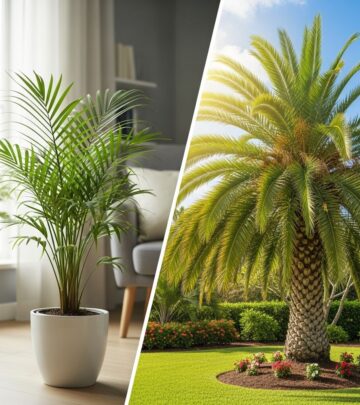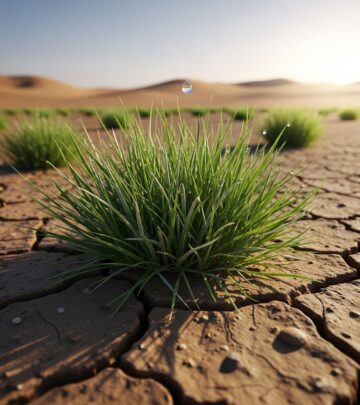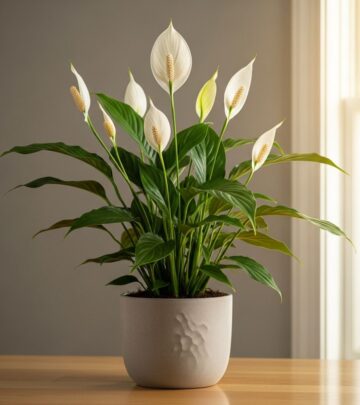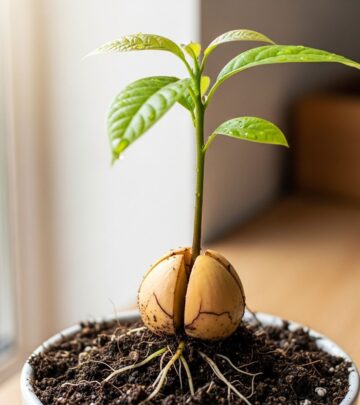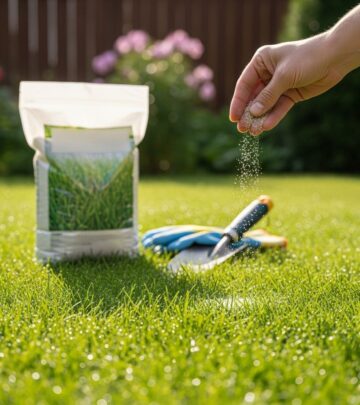17 Red Hydrangea Varieties For Vibrant Garden Displays
Bold blooms that shift with soil pH bring effortless color and contrast to borders.
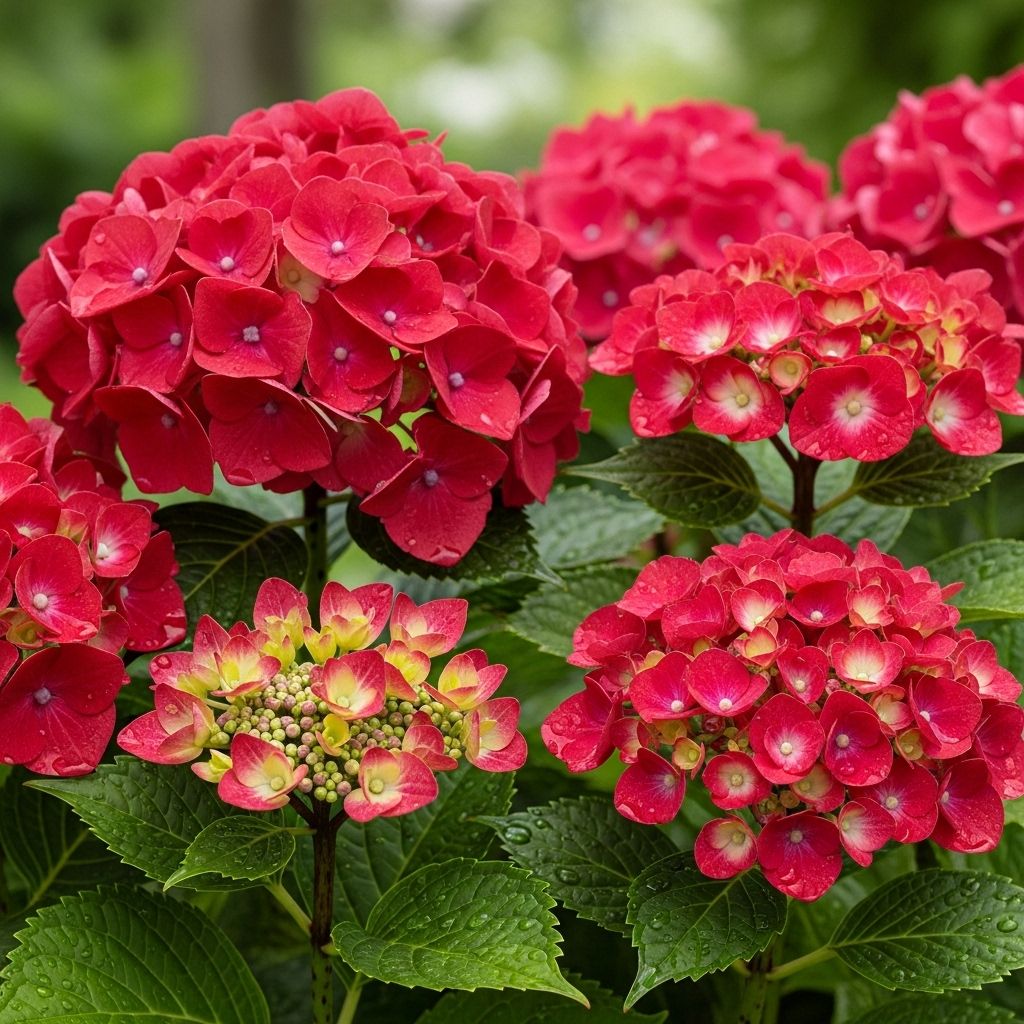
17 Red Hydrangea Varieties With Striking Blooms
Red hydrangeas are a dramatic and eye-catching addition to any garden, standing out with their bold hues and lush blossoms. Gardeners often seek red hydrangeas to bring vibrant color, dynamic contrast, and long-lasting beauty to borders, containers, and perennial beds. This guide introduces 17 of the most spectacular red hydrangea varieties, highlighting their features, bloom times, garden uses, and care essentials required for optimal growth and display.
Why Grow Red Hydrangeas?
Hydrangeas are renowned for their spectacular floral displays, and among the blues, pinks, and whites, red varieties provide a unique visual statement. They can be dramatic focal points, work beautifully in containers, and serve as exceptional cut flowers. Many red hydrangeas are also pH sensitive: their flower color can change depending on soil conditions, often yielding the most intense reds in alkaline soils and sometimes purples or pinks in more acidic environments.
Factors Affecting Hydrangea Color
- Soil pH: Red hydrangeas typically display their most vivid color in alkaline or neutral soils. Acidic soils may shift their hues toward purple or blue.
- Plant Genetics: Some varieties are bred specifically for red tones and hold their color more consistently.
- Sun Exposure: Most red hydrangeas thrive in morning sun and afternoon shade, which helps maintain their best coloration and health.
Best Red Hydrangea Varieties
Below are 17 of the top red hydrangea cultivars, each noted for their vibrant color, garden adaptability, and ornamental appeal.
1. Endless Summer® Summer Crush®
- Bloom Time: Summer
- Height: 2–3 feet
- USDA Zones: 4–9
- Garden Uses: Border, container, perennial garden
This reblooming hydrangea delivers raspberry-red blooms on both old and new wood, producing vibrant color all summer long. Note: In acidic soils, flowers may appear more purple, while alkaline soils yield intense reds.
2. Magical Ruby Red
- Bloom Time: Late spring to late summer
- Height: 3 feet
- USDA Zones: 5–9
- Garden Uses: Border, container, perennial or cutting garden
Compact with deep ruby blooms that transition to wine-red, often speckled with lime-green as they age. The lush, deep green foliage provides a vivid backdrop for the flowers, ideal for partial shade areas.
3. Cityline® Paris
- Bloom Time: Early to late summer
- Height: 1–3 feet
- USDA Zones: 5–9
- Garden Uses: Container, border, small gardens
Known for its exceptionally vivid, almost hot pink to red mophead flowers, Cityline® Paris remains compact, making it perfect for urban gardens or container displays.
4. Miss Saori
- Bloom Time: Late spring to summer
- Height: 3–4 feet
- USDA Zones: 5–9
This award-winning hydrangea features double red-pink blossoms edged in white, creating a striking, lace-like effect that persists throughout the blooming season.
5. Red Sensation (also known as ‘Red Star’)
- Bloom Time: Summer
- Height: 4–5 feet
- USDA Zones: 5–9
Large, rounded mopheads show off true red to crimson blooms, intensifying as the season progresses, especially in alkaline soils.
6. Love Hydrangea
- Bloom Time: Summer to early fall
- Height: 3–4 feet
- USDA Zones: 5–9
‘Love’ produces multi-layered blooms in shades of deep pink to red, making it a garden favorite for romantic borders or accent plantings.
7. Magical Candle
- Bloom Time: Summer to fall
- Height: 3–5 feet
- USDA Zones: 5–9
Blossoms emerge white then deepen into rich red, presenting a magical color transformation in late summer.
8. Red Beauty
- Bloom Time: Early to late summer
- Height: 2–4 feet
- USDA Zones: 5–9
With its compact size and bright red flowers, Red Beauty is suitable for borders, containers, and small spaces.
9. Royal Red
- Bloom Time: Late spring to summer
- Height: 4–6 feet
- USDA Zones: 6–9
This robust hydrangea presents classic red mophead flowers, perfect for more spacious beds and bold garden statements.
10. Alpengluhen ‘Glowing Embers’
- Bloom Time: Summer
- Height: 3–4 feet
- USDA Zones: 5–9
‘Glowing Embers’ features large, rounded clusters of deep red blooms, admired for their long-lasting color and suitability in foundation plantings.
11. Lady in Red
- Bloom Time: Early summer to fall
- Height: 3–4 feet
- USDA Zones: 6–9
- Special: Lacecap style flowers, red stems and veins
This lacecap variety stands out for its red stems, vivid red-tinged leaves, and delicate blooms that deepen in color as they mature. It is notably durable and a favorite among pollinator-friendly gardens.
12. Fireworks Red
- Bloom Time: Summer
- Height: 3–5 feet
- USDA Zones: 5–9
Produces panicles of red-pink flowers resembling a burst of summer fireworks.
13. Red Dragon
- Bloom Time: Mid to late summer
- Height: 2–3 feet
- USDA Zones: 5–9
Compact and decorative, with deeply colored red flowers and foliage with hints of burgundy in fall.
14. Kolbalt
- Bloom Time: Summer to early fall
- Height: 3–4 feet
- USDA Zones: 6–9
Offers red tinged blooms with attractive, dark green leaves and strong, upright stems.
15. Red Baron
- Bloom Time: Summer
- Height: 3–5 feet
- USDA Zones: 5–9
Known for its rounded clusters of deep red flowers, this variety maintains its color longer into the season, ideal for cut flower arrangements.
16. Abracadabra® Red
- Bloom Time: Summer
- Height: 3–4 feet
- USDA Zones: 5–9
This compact plant features round, vibrant red blooms on strong stems and truly stands out as a garden centerpiece.
17. Lady in Red Mountain Hydrangea (Hydrangea serrata)
- Bloom Time: Early summer to fall
- Height: 2–4 feet
- USDA Zones: 6–9
- Special: Compact lacecap, ideal for shade
A mountain variety with vibrant red lacecap blooms and decorative red-tinged foliage, perfect for shady or woodland borders.
Red Hydrangea Types: Mophead, Lacecap, and Mountain Hydrangeas
Red hydrangeas come in several forms, each bringing its own charm to the garden:
- Mophead Hydrangeas (Hydrangea macrophylla): Large, rounded flower heads, most common type, and highly valued for intense red or raspberry blooms.
- Lacecap Hydrangeas: Flat-topped clusters with a center of tiny fertile blossoms surrounded by showy, sterile florets. Often more delicate in appearance and favored for naturalistic or wildlife-friendly gardens.
- Mountain Hydrangeas (Hydrangea serrata): Typically more compact, with lacecap flowers and often selected for their shade tolerance and striking foliage color.
Best Garden Uses for Red Hydrangeas
- Container Planting: Compact varieties thrive in pots, perfect for patios or small spaces.
- Borders and Edges: Medium to large varieties add structure and color to beds and borders.
- Cut Flower Arrangements: Long-lasting blooms make excellent fresh or dried arrangements.
- Woodland or Part-Shade Gardens: Mountain and lacecap varieties add color to shaded spots.
How to Grow and Care for Red Hydrangeas
Getting the boldest reds from your hydrangeas depends on following these key care tips:
- Soil Preparation: For the truest reds, aim for neutral to slightly alkaline soil. Amend with lime if your soil is very acidic. Use organic matter to improve fertility.
- Watering: Hydrangeas love moisture but need well-draining soil to prevent root rot. Water deeply during dry spells.
- Light: Provide morning sun and afternoon shade, especially in hot climates. Too much direct sun can fade flowers.
- Fertilization: Feed with a balanced, slow-release fertilizer in spring. Avoid high-phosphorus fertilizers, which can affect color development.
- Pruning: Red hybrid hydrangeas may bloom on old wood, new wood, or both (as with ‘Endless Summer’ types). Minimal pruning is needed: remove dead or weak stems after flowering. Check if your variety is a rebloomer for potential midsummer blooms.
- Protection: Mulch roots in winter and shelter from cold winds to protect flower buds, which may be sensitive to frost.
Table: Comparison of Key Red Hydrangea Varieties
| Variety | Bloom Time | Height | Zones | Form |
|---|---|---|---|---|
| Endless Summer Summer Crush | Summer | 2–3 ft | 4–9 | Mophead |
| Magical Ruby Red | Late spring–late summer | 3 ft | 5–9 | Mophead |
| Cityline Paris | Early–late summer | 1–3 ft | 5–9 | Mophead |
| Miss Saori | Late spring–summer | 3–4 ft | 5–9 | Mophead |
| Lady in Red | Early summer–fall | 3–4 ft | 6–9 | Lacecap |
| Red Sensation | Summer | 4–5 ft | 5–9 | Mophead |
Frequently Asked Questions
How do I keep my red hydrangeas from turning blue or purple?
Maintain soil pH between 6.0 and 7.0 (neutral to slightly alkaline) by adding garden lime to prevent blooms from shifting toward purple or blue.
Are red hydrangeas challenging to grow?
Most red hydrangeas are hardy and adaptable. Provide partial shade, fertile soil, and consistent moisture, plus winter protection in colder zones, for best results.
Can I grow red hydrangeas in containers?
Yes, many compact varieties such as Endless Summer Summer Crush and Cityline Paris thrive in large containers or patio pots.
Which red hydrangea is best for shaded gardens?
Mountain hydrangeas like ‘Lady in Red’ (Hydrangea serrata) are ideal for part-shade or woodland settings, with compact growth and lovely lacecap blooms.
Will red hydrangeas attract pollinators?
Yes, lacecap and mountain varieties in particular are attractive to bees and butterflies due to their open flower structures.
Red Hydrangea Planting and Placement Tips
- Choose Your Site: Select well-drained, fertile soil with at least four hours of indirect sunlight daily.
- Spacing: Leave adequate room between plants to ensure air flow and prevent disease.
- Spring or Fall Planting: These are the best seasons for transplanting hydrangeas, avoiding heat stress.
- Mulching: Apply a thick organic mulch layer to retain soil moisture and suppress weeds.
Conclusion: Add Drama and Elegance With Red Hydrangeas
Red hydrangea varieties are unmatched for delivering garden drama, whether as statement specimens, border accents, or patio container delights. With their diverse forms, bloom times that extend from late spring through fall, and beautiful interplay with soil chemistry, there is a red hydrangea for every gardener. Choose the ideal variety for your space and enjoy months of rich, radiant beauty every year.
References
- https://www.epicgardening.com/red-hydrangea-varieties/
- https://www.epicgardening.com/how-to-grow-hydrangeas/
- https://joegardener.com/podcast/assessing-hydrangea-cold-tolerance/
- https://www.mckaynursery.com/shrubs/hydrangea-plants
- https://www.pinterest.com/pin/17-red-hydrangea-varieties-with-beautiful-red-blooms–476044623128419238/
Read full bio of Srija Burman

